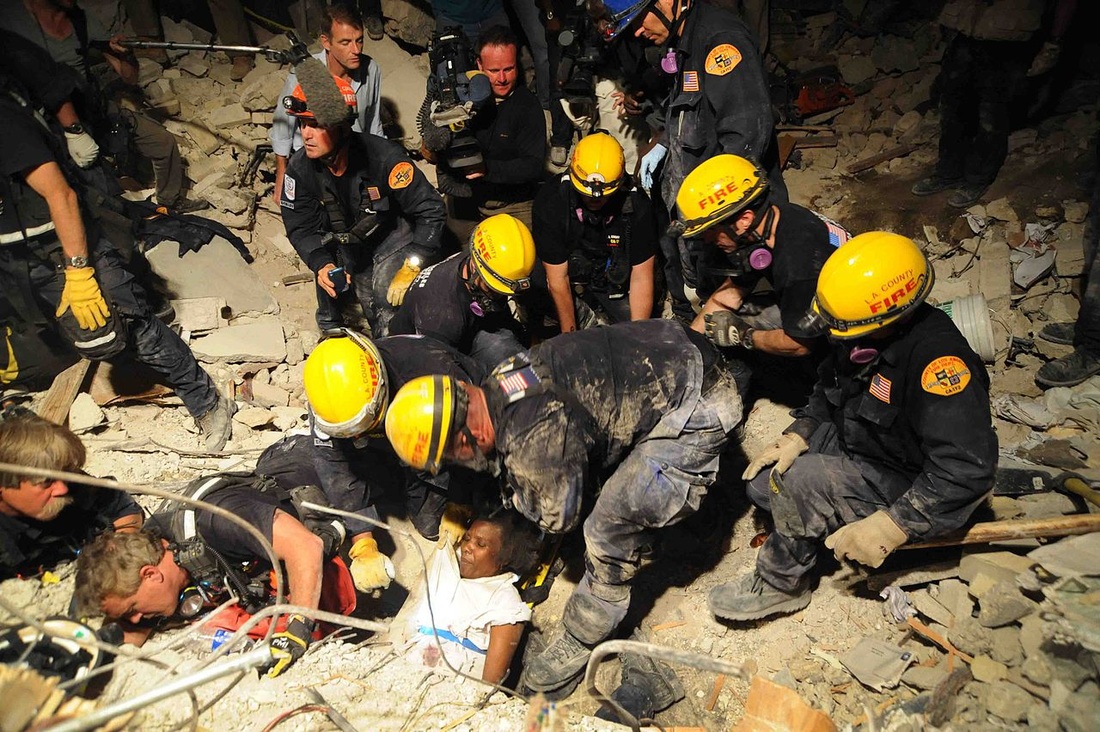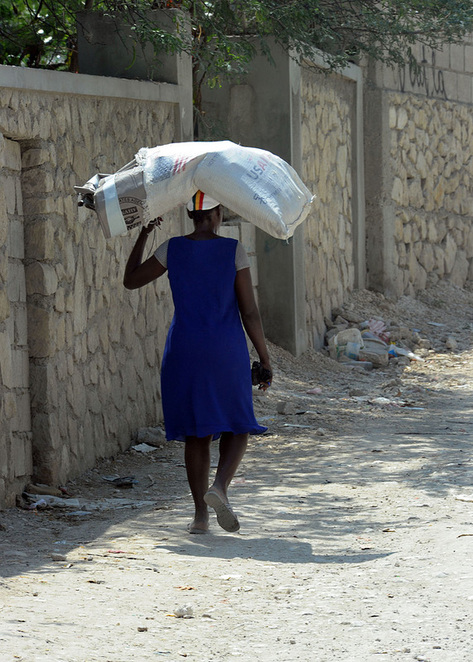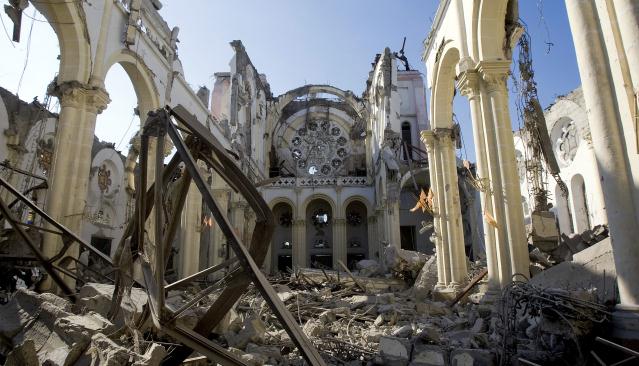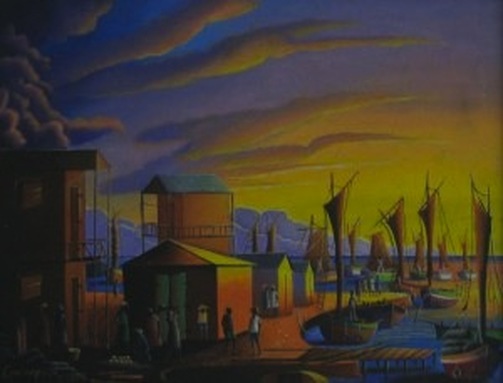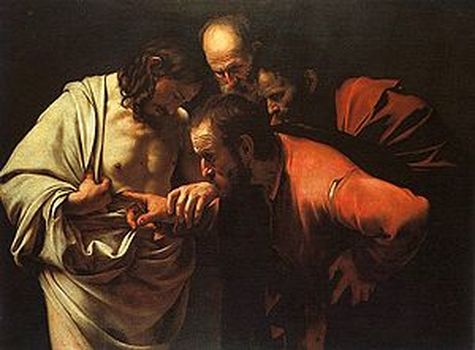|
January 12th 2010, Haiti Madonna of Port-au-Prince You who look like Alice Your eyes red with shattered plaster and weeping Your full lips bruised with dirt Your hairpiece of locks slipping back like a cowl The powder dusting your oval cheeks is grey concrete — If the rest of you was not buried under rocks of blasted wall And the figure in the foreground was not blood splattered And someone’s leg was not trapped behind you, You could have been a pretty girl With sand on your bare arms Writing your name on a shell On some beach off Les Cayes— You who look like Alice Another lost girl I used to know, Not an ikon’s model On a chapel wall in Jacmel But a strange Madonna anyhow Flat on the scattered masonry Sans enfant, or enfant gone from your hands To the devouring earth — The ikon herself Impassive Erzulie, gazing through your Carib face From a palette of pixels Framing now before me. Maman Did you find him, maman, the old man, Or was it the grandchild left in your care for the day, Or, in the catastrophe behind you, The daughter who was setting your supper, Or perhaps your friend, having a Dominican ponche with you? Your long arms, maman, are bathed in the white dust of disastrous city-fall, Your fingers are exhausted from their frantic and futile search for bones, For hair, for a belt or a bodice, For a baby, a baby who was impossibly there, Gurgling at her spoon Teasing your heart, And you singing a lullaby, “Haiti Cherie” Haiti beloved, beloved child, Gone child, gone with the walls, the debris, the tranblanterre and the lavalas, Gone from your arms, from your keening, scrabbling fingers Despairing under block, under board, under broken back And the child disparu, taken — Or was it your friend from Cap Haitien, Or the daughter who shared your name, Or the old man — companion of your days, Comrade of sleepless hours, keeper of your young heart Comforter of those fallen breasts Fallen under your torn chemise Fallen with the roofs and the windows and the President’s house Fallen with the broken routes of Port-au-Prince Fallen and forlorn, Haiti Cherie? Cathedral The ionic columns hold nothing up Not the twin cupolas that welcomed mariners to Port-au-Prince Not the grand round windows of stained-glass ikons Not the novenas of those who died in the fallen girders, Unless you count the blue dome of vacant air The ruined, ruined facades The hovering stench — Has Boukman triumphed? Do Legba and Ghede aka Baron Samedi mount the buried altars? Does Ogoun lie entombed in this broken peristyle? Do these curious questions matter to the houngan Crying down the mess of fallen masonry To touch his daughter’s ears?-- Outside the shattered cathedral The women kneeling in the dust Raise rosaries to the familiar Haitian sky And lift their psalms Past the ionic columns That hold nothing up. At Capernaum, Boats “The people who sat in darkness have seen a great light, and upon those who sat in the region and shadow of death, light has dawned.” – Matthew 4:16. This, the Port of the boat people This, the Port of their Prince Home-harbour safe Docks of sails in sunset-- This is the Port of the boat people After Dessalines and Duvalier, HIV and cholera After tornado and tremblor The Gadarene adventure and their Bay of Pigs Canoewrecks off Florida, the invading boots of marines From caravel to carrier— After the desolate cities of my pilgrimage And diverse tribulations From deserts and catacombs to creole favelas, These crosses of masts under the purpling evening Their sails folding like seamless robes The people neither coming nor going Home-harbour safe Intransit to the undying lands of their Prince Who loved fishermen Who slept in their boats Roped their storms to His peace And encompassed their little faith With His incomprehensible love Home harbour safe— At Capernaum, boats The Port of the boat people The Port of our Prince. In Caravaggio’s Ikon
In Caravaggio’s ikon of Thomas seeing Christ all eyes are locked to the doubter’s firm finger poking around the torn flesh, under the strong hand of the Carpenter. Thomas, Apostle to our secular, mocking, murderous new age, meeting his worst-case scenario with the firm grit of flesh under his thumb that index of incarnation— incarnation, Immanuel God is with us — under the impossible rubble as we claw at the unimaginable earthfall, Immanuel— over the body of someone’s son fallen in crossfire in shrieking shadowlands of betrayal through terminal disorientation of disease, Immanuel. Because that wound is real, the death was certain here, beyond reason, beyond the apocalypse of private disasters, is something else is Life beyond life, beyond heartbreak beyond assassination, beyond the tremblor at 3 in the afternoon, beyond the amnesiac cancer of the mind. Here, under our finger, is faith, here is hope, and He asks us, against the brutal heel on the locked door the harsh fist of imploding earth the shroud covered bier— “Love one another.” John Robert Lee JOHN ROBERT LEE (b. St. Lucia 1948) has published several collections of poetry. His short stories and poems have been widely anthologised. His reviews and columns have appeared with regularity in newspapers, local and regional. He has also produced and presented radio and television programmes in St. Lucia for many years. His books include Saint Lucian (1988), Artefacts (2000), Canticles (2007), Elemental (2008), Sighting (2013), City Remembrances (2016). He compiled and edited Roseau Valley and other poems for Brother George Odlum (2003), Bibliography of Saint Lucian Creative Writing 1948-2013 (2013); he co-edited Saint Lucian Literature and Theatre: an anthology of reviews (2006) with fellow St. Lucian poet Kendel Hippolyte and co-edited Sent Lisi: poems and art of Saint Lucia (2014) with Kendel Hippolyte, Jane King and Vladimir Lucien. Editor's note: Some of the photos shown with John Robert Lee's Haiti earthquake sequence were not the original photos that he was inspired by. Where unable to obtain permission to show specific photographs, Ekphrastic has substituted public domain imagery that is related to the pieces. In this case, the author and editor believe the subject matter is so important and timely again that selecting related imagery was the best option. Both paintings are the original inspiration.
2 Comments
Norbert Kovacs
10/21/2016 07:51:46 pm
At Capernaum, Boats offers an nice summary of Haiti's history over the past several decades. In Caravaggio's Ikon is a statement of hope for a country that must need it. Thank you Mr. Lee for sharing these poems.
Reply
Mary McCarthy
10/26/2016 10:23:53 am
Love and compassion for a people and their country palpable and alive in all these wonderful poems--people so unfortunate in this world of unfortunates, their history a chain of disasters both natural and political--and yet this poet sees them alive with hope!
Reply
Your comment will be posted after it is approved.
Leave a Reply. |
The Ekphrastic Review
COOKIES/PRIVACY
This site uses cookies to deliver your best navigation experience this time and next. Continuing here means you consent to cookies. Thank you. Join us on Facebook:
July 2024
|
